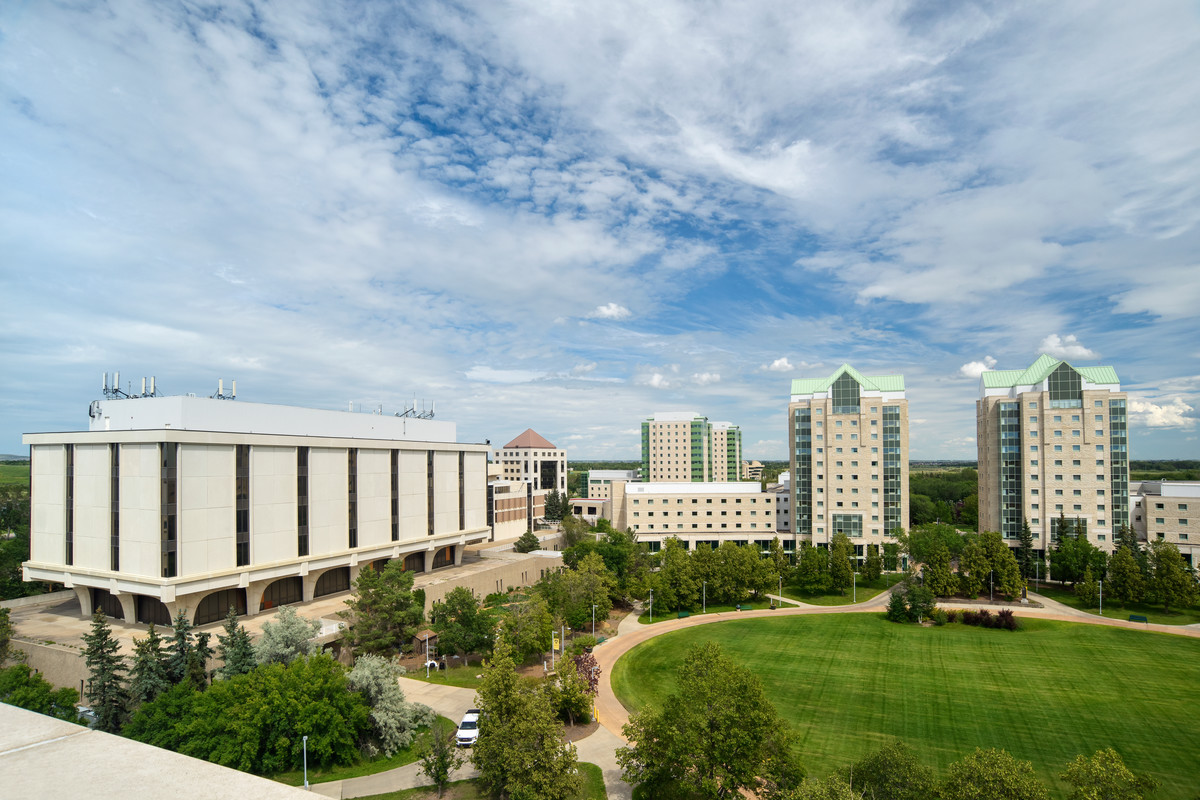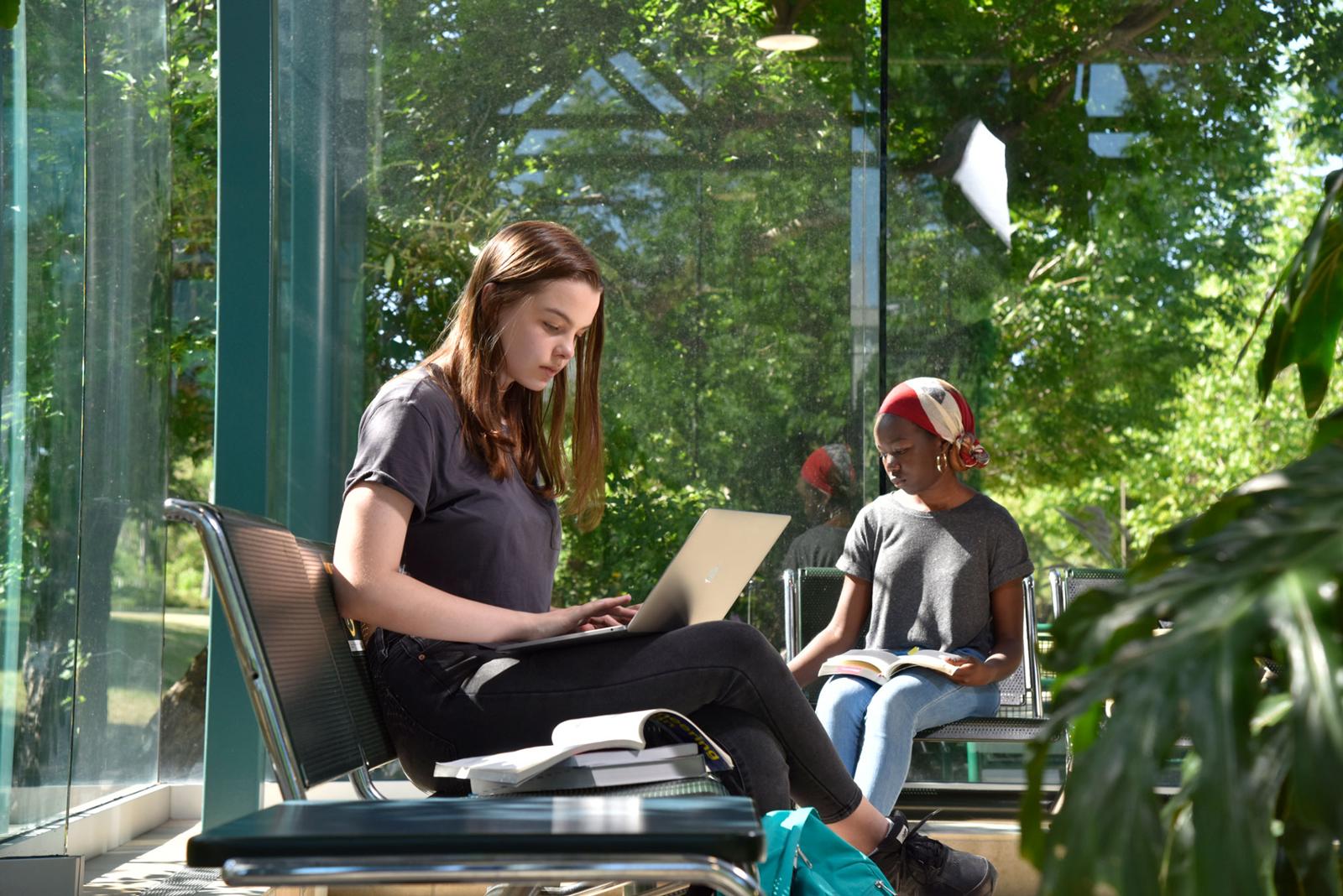Parent and Supporter Information
Supporting Your Student
At the University of Regina, we understand that you are a key part of your children’s education journey and we want to make sure that you have all the information you need to support your student in their pursuit of higher education. The Enrolment Services Team will serve as your liaison to the University of Regina campus and will help you and your student navigate their next steps.
A note about privacy: When students start the application process, the U of R considers them adults. This means that their personal information is protected under the Freedom of Information and Protection of Privacy Act, and cannot be released. We can certainly answer your questions regarding general information and provide overviews in our newsletters, but cannot give any information about your student’s application or related personal information.
Want to stay informed throughout the admission process? Our Parent and Supporter Newsletter can keep you up to date on important dates, deadlines, and U of R information as your student works towards beginning their studies with us.
U of R At A Glance

The University of Regina has many strengths. Our welcoming campus community and our high quality student supports help students of all backgrounds find a home away from home as they take the next step in their educational journey.
How Does a Bachelors Degree Measure Up?



Studies by Statistics Canada show that graduates with a Bachelor’s degree earn considerably higher wages than high school graduates (about 2 times higher). While there are variations in earnings by discipline, post-secondary graduates are more likely to be employed and earn greater income than those who do not study beyond high school. This can really add up! In the course of a lifetime, the difference can be more than $700,000. What a great return on your investment!
Learn More About:
Parent & Supporter FAQs
We get it – narrowing down all the options for programs and careers can be a big task. Students can start by exploring our academic programs and finding which ones line up best with their interests and goals. There may be more than one path that could fit their career goals! For support on this process, students are encouraged check out these options:
What happens if they change their mind?
That is okay! Many students end up changing their career paths along the way.
Students: If you find yourself considering another area after you begin, you have lots of support available to look into other career paths and options for making changes to your major, program, or even U of R Faculty. Enrolment Counsellors, Academic Advisors, and the staff in the Advising & Career Education (ACE) can assist with re-evaluating your career direction.
There are specific high school classes required for admission to University of Regina, which vary by faculty and sometimes program. High school courses are also used as pre-requisites for select university courses. Students should be aware of both when planning their high school studies to ensure they are set up for success towards their future post-secondary studies.
Check out the High School Admission information here. Students are also encouraged to review the Application Guide for final admission requirements (required courses and grades), application deadlines, and additional details.Course selection can be confusing, even in high school. Our team is here to help you and your student make the best choices to ensure that they will have the courses needed for their program of choice. Guidance counsellors are also excellent resources and can make recommendations about the types of courses your child should take related to their future goals. Encourage your child to be open to different options, to challenge themselves, and to reach out when they need support!
All prospective students are encouraged to book an appointment with our Enrolment Counsellors to discuss admission requirements and preparing for university. Book an appointment here!
Insider Tips:
- The University of Regina cannot use modified classes for admission (these courses are often number “21” or “31” found on a transcript, etc.).
- When in doubt, students should take Pre-Calculus - especially if there is any chance they will apply to Science, Engineering, Kinesiology, or Nursing.
- Grade 11 marks are important because we use them for Early Conditional Admission when your student applies during grade 12. FYI: we also use the early conditional admission average for assessing scholarships and awards.
- Many Advanced Placement (AP) or International Baccalaureate (IB) courses taken in high school can receive transfer credit for University-level courses which will save you and your student time and money once they arrive at University. However, AP and IB courses are never required for University of Regina admissions.
The exact cost of education at the University of Regina depends on a variety of factors. Students should consider factors such as how many classes they will take, whether they will live in on-campus housing, how many textbooks they may need, and what their living expenses will be. It is important to be informed of all potential costs when creating a budget.
University education requires your family to make a significant investment. We understand that all of the options can be daunting, and are committed to working with you and your family from the beginning of your exploration into the University of Regina. Funding options for students may include various U of R and external supports, such as:
- U of R Scholarships, Awards, and Bursaries
- Government Financial Assistance (Student Loans)
- Registered Education Savings Plan (RESP)
- Canada Education Saving Grant
- External Scholarships and Awards
- Private Student Loans and Lines of Credit
Learn more about Funding Your Education.
Insider Tips:
- For students, having a part-time job while they are in university is a great way to gain experience and transferable skills, and for many is a financial necessity. However, we recommend that students limit the number of hours they work as attending University could be considered a full-time job!
- The Co-operative Education Program is a great way for students to help finance their education and gain valuable experience. It alternates practical, career-related, paid work terms with semesters in class, giving students 12-16 months of supervised work experience by the time they graduate.
- In order to help your student succeed in money matters, talk to them now about their financial plan and help them set a budget as they begin their post-secondary journey.
If your student has been awarded an automatic entrance scholarship, it is paid into their student account during their first semester of study at the U of R. This is typically around the third week of September for students entering the U of R directly after high school.
All U of R students can choose to live in one of our many on-campus housing options. Students who live on campus are provided a safe and supportive environment where they can pursue their goals. Knowing this can help you feel confident and ready to help your student adjust to university life. Students can choose from the many accommodation options in U of R Housing Services or in The Student Village at Luther College.
Learn more about Residence and Dining here.
Learn more about the Student Village at Luther College here.
Yes! There are options for students to take a university course while still in high school or in the summer after graduation, prior to starting their program at the U of R in the fall.
Visit Campus
We would love to show you around the University of Regina! Connect with us to visit campus and access support as your student prepares for their future at the University of Regina.